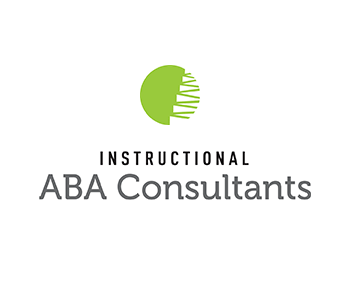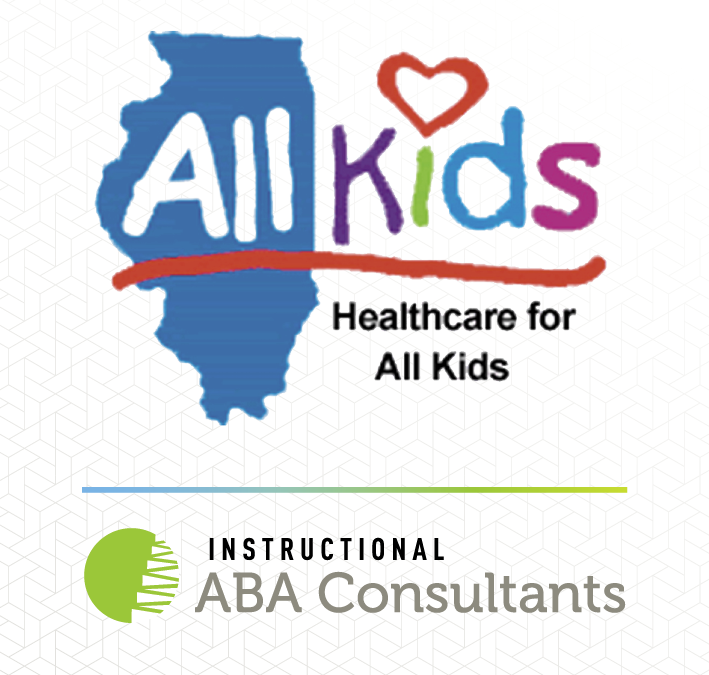
by IABA Team | Apr 18, 2022
Haircuts are difficult for many young children. Adding sensory sensitivities to the equation can make haircut appointments even harder. This is why we want to talk about haircuts for autistic children and what can be done to make appointments easier.
This article is a continuation of the topics from the last two weeks (Dental Visit Tips for Children with Autism | Doctor Visit Tips for Children with Autism). These are important topics, as getting your child comfortable with important social situations, while difficult, is necessary.
Finding an Autism-Friendly Hair Stylist
There aren’t many comprehensive autism-friendly hairstylists or salon lists available on the internet. This doesn’t mean you’re out of luck when it comes to searching for a great place to get a haircut, however.
Some beauty professionals list autism-friendly on their websites. This makes using search engines to find them very easy. Use search terms like ‘autism haircut near me’ or ‘autism-friendly hair stylist’ to start your search.
If you are comfortable with addressing the sensory sensitivities your child has that may arise during a haircut appointment, be sure to ask about or make requests beforehand.
- No electric clippers, blowdryers, water, shampoo, etc.
- Any specific touching or holding of the hair
- Scheduling an appointment at a less busy time
Talking to your child’s therapist before a haircut may also be a big help in jogging your memory for things that may help.
Preparing for a Professional Haircut
Before an appointment with the hairdresser, there are a few steps you can take to ease your child into feeling more comfortable about the appointment.
- Take a few trips to the salon before the appointment to acquaint your child with the environment
- Practice with brushes and combs while your child is seated at home
- Make sure to note any sensory issues that could arise: noise from electric clippers and blow dryers, hair touching, using water, etc
- Make sure your child has toys or objects they can have during the haircut
ABA Therapy from IABA Consultants
If you have questions regarding autism treatment, education, or plans to use ABA therapy, we are here for you! Our goal is to make sure no family is turned away due to financial constraints. Our therapy team would love to talk to you. Find the location closest to you and give us a call. We’re here for you.

by IABA Team | Apr 11, 2022
Taking your child to the doctor for a checkup can be an ordeal, especially if your child has related sensory sensitivities. The setting, noises, number of people, and other things can lead to many different sensory issues.
Like last week’s blog on visiting the dentist, this week we wanted to focus on making trips to the doctor easier.
Finding an Autism-Friendly Pediatrician
There aren’t many comprehensive autism-friendly doctor or pediatrician lists available on the internet. This doesn’t mean you’re out of luck when it comes to searching for a great doctor, however.
Many medical professionals list autism-friendly on their websites. This makes using search engines to find them very easy. Use search terms like ‘autism pediatrician near me’ or ‘autism-friendly pediatrician’ to start your search.
It is also imperative to call the office with questions ready before scheduling an appointment. Things to talk about before scheduling an appointment should include:
- Anything regarding existing behavioral or developmental conditions and how they may affect the visit or appointment
- Any sensory sensitivities with light, noise, crowds, or other situational concerns
- Communication difficulties with your child (noises, nonverbal, etc)
- Any common triggers that may be found in a new setting
- If a special waiting area is available for children with sensory sensitivities or autism
- If your child has certain difficulties with waiting or new places you may want to ask about scheduling a specific appointment where you don’t have to wait. Be sure to tell the scheduler about concerns regarding waiting times.
Make sure to have a list ready so you don’t forget anything during the phone call.
Preparing for a Visit to the Doctor
As it can be for other activities and appointments, a visit to the doctor can potentially throw children with autism off their routine. Making sure your child has easied into a schedule where an appointment may fit in is a great first step to take.
Be sure to bring any toys or objects that will make your child feel comfortable during the visit. Remember–the waiting period can be just as difficult as the appointment, especially if the doctor is delayed.
Visiting the office before an appointment can also be very helpful to acclimate your child to a new environment. If you have concerns about the new environment, be sure to call the office and see if you can make a few short trips there before the appointment.
A few things to be sure to have on hand for a doctor’s appointment include:
- Any important toys or objects
- Snacks or drinks
- Prefilled paperwork (if any is given before the appointment)
- A plan to deal with any large outbursts or behavioral issues
Be sure to talk to your child’s therapist if you have any concerns before an appointment. They know your child well and should have some great information that may help.
ABA Therapy from IABA Consultants
If you have questions regarding autism treatment, education, or plans to use ABA therapy, we are here for you! Our goal is to make sure no family is turned away due to financial constraints. Our therapy team would love to talk to you. Find the location closest to you and give us a call. We’re here for you!

by IABA Team | Apr 4, 2022
Depending on their sensory sensitivities, going to the dentist can be a challenge for autistic children and their parents. The medical setting, the noises, and the procedures can lead to many different sensory issues. Even finding a dentist who has autism-friendly procedures in place can be a challenge!
We wanted to list a few tips and general information that may help make your child’s next visit to the dentist easier.
Practice Dental Care at Home
The first tip is a very important one. While it is impossible to simulate a dental visit at home, children can still learn about and get comfortable with certain aspects of dental care. Common sensory issues you should be aware of with at-home dental care include:
- Toothbrush bristle size & firmness
- Flossing techniques and floss flavor & style (waxed or unwaxed)
- Water temperature
- Toothpaste flavor & style (paste, gel, etc)
- Mouthwash preferences (start with mild, ‘no-sting’ or kid-friendly brands)
- Flavors in general (as fluoride is available in different flavors at the dentist)
To simulate a visit to the dentist before your appointment, you may want to try:
- Practicing dental hygiene while your child is seated
- Removing sweets a few days before the appointment
- Making a visual aid for the date the appointment is scheduled
Talking to your child’s therapist about an upcoming dental appointment is also a great way to get more helpful information directly related to your child’s needs.
At-Home Dental Tools for Children with Autism
Brushing and flossing are obvious aspects of dental care to practice, but other dental tools can be purchased for home use. Tools like power toothbrushes, dental picks, and fluoride kits are all commonly found in dental offices but can also be purchased by anyone.
Common dental tools recommended to help get a child comfortable before a visit include:
- Toothbrushes of different firmness & size
- Power toothbrushes
- Different types of floss
- A Waterpik
- Small flashlight (as dentists use lights)
- Mirrors
While Waterpiks and power toothbrushes aren’t required, they may help prepare your child for dentist-specific sensory issues. Again, talking to your child’s therapist before a scheduled dental appointment may shed some light on other tools that may help.
Finding an Autism-Friendly Dentist
There aren’t many comprehensive autism-friendly dentist lists available on the internet. This doesn’t mean you’re out of luck when it comes to searching for a great dentist, however.
Many dental professionals list autism-friendly on their websites or advertisements. This makes using search engines to find them very easy. Use search terms like ‘autism dentist near me’ or ‘autism-friendly dentist’ to start your search.
You’ll still want to call the dentist’s office to get a feel for their services and discuss your child’s needs. Make sure to have a list of any sensory issues that may pop up when talking to a potential candidate. Be sure to bring any safe toys or object your child needs to feel safe in an outside environment.
There are many options for dental care in urban and suburban areas. Make sure to find a dentist that will make your child feel as comfortable as possible.
ABA Therapy from IABA Consultants
If you have questions regarding autism treatment, education, or plans to use ABA therapy, we are here for you! Our goal is to make sure no family is turned away due to financial constraints. Our therapy team would love to talk to you. Find the location closest to you and give us a call. We’re here for you.

by Jessie Cooper | Mar 31, 2022
Over the course of that last month, I’ve written to you about finding joy amidst hardship, living through pain, leaving domestic violence, and navigating fear. This is not a light load for anyone to take, let alone write about. Outside of my own personal experiences, I know that the people I love (and the world) are carrying hardship too.
LIfe has always had joy, pain, happiness, sorrow, and other dualities. Add a 2+ year pandemic to any of those feelings and we have an additional ongoing hardship to navigate in addition to life being, well, life. How are we surviving and how can we thrive during this time? I don’t know the answer to that but I do know that taking care of our own hearts, bodies, and spirits is truly the only option to get through it.
Taking Care of Yourself
I’ve been a healthcare professional for longer than I’d like to admit (15 years and counting). Over the course of my time with an active caseload, I cannot tell you how many times I repeated the age-old line “you have to put your oxygen mask on first!” when talking to exhausted caregivers of children with behavioral disorders. Fast forward a decade to when I became a mommy and joined the bandwagon of “self-care isn’t selfish, really!” as I carved out time for myself to have enough capacity to raise my little men. Talking the talk is easy to do and going through the motions of self-care has also been extremely publicized over the years.
Need more you time? Pour a glass of wine. Exhausted? Slip into a hot bath. Don’t miss the gym! Press that green juice. Where is your yoga mat? Society and marketing firms have a list of activities that we all can do in order to recharge our batteries and put ourselves first. While we might actually enjoy some of these activities, these slogans and lists completely miss the mark.
You see, all the slogans are telling us that we could actually be more perfect at taking care of ourselves in addition to a mounting list of things to do in order to live the ‘ideal’ life. Perfectionism is not in short supply these days. Neither are product lines nor marketing companies that profit from our deep dives into perfectionism and trying to be ‘good enough.’
In short, the way society (and I) used to talk about self-care is a one size fits all methodology, but one that can actually leave us more exhausted than relaxed. But self-care is really important, and recharging is essential during well, life, and times of high stress. So how do we fill these needs for ourselves? How do we take care of our beautiful but exhausted hearts, spirits, and bodies? My first piece of advice has literally gotten me through my entire life (the good, the bad, and the ugly). Ready for it? My mother would be shocked. Don’t listen to anyone. Like anyone.
Listening to Your Real Needs
I mean I can apply “don’t listen to anyone” to most facets of my life (it’s not always right!) but in regards to self-care I know I’m on to something. How could anyone from the outside world tell you how to take care of yourself when our needs as humans come from inside of our bodies and spirits? The only voice that can actually tell us what we need to recharge is our own. When we need it, how we need it, what feels good, what doesn’t, and so on. Self-care looks like being a guardian of your own energy and putting what your heart, spirit, and body need before the needs of others. Yes, even your children and especially every other person you love.
In a world where we are buzzing and being “so busy,” simply saying, “firm no,” to anything and anyone is the first step to listening to what you really need. It’s impossible to be honest with yourself if you do not make time for yourself. Self-care isn’t a status, it’s a way of being, one that I needed to be more honest with myself about recently. Burning at both ends has been my status quo for well over a year (OK, more than 5 years). Then I remember the wise voice inside of me that wished for my health and happiness above all else. Then I remembered to sit down and listen to what I really needed.
For me, I needed more time with my friends and family and more quiet time to reset on my own. It was a balance. I also needed better food, less sleep (I was over napping… a lot), and finding time to be quiet in my own body (so I did sign up for some yoga classes). I’m not fully re-energized yet but each morning I remind myself I am my own guardian and that I’m worth it. Trauma comes, hardship comes, and our hearts, spirits, and bodies need us to care deeply and kindly for them as we navigate our own personal pain (or just a bad day). We all need a little more kindness starting with ourselves.
It is only in taking care of ourselves that we can care for others. I won’t go all oxygen mask on you but I will challenge you by asking you this, “what hurts, what is tired, and what do you need?” Turn off the noise of the outside world, tune into yourself, and find out. It’s a journey worth taking, I promise.
Xoxo,
Jessie

by IABA Team | Mar 22, 2022
As of March 2022, IABA consultants is accepting clients with Medicaid as an insurance provider. The programs and services for ABA therapy offered to Medicaid clients are identical to those offered to private pay insurance clients.
The biggest changes we are making to our offered services are based on programs developed by our LCSWs (Licensed Clinical Social Workers). These programs will be based around systemic and familial issues, chiefly education and communication.
Future ABA Social Programs for Children with ASD and Their Families
While the general ABA therapy services are currently the only things we offer (as of March 2022), we have plans for more in the future. Our LCSWs have started working on the following supplemental care services:
- Social skills groups (tentatively scheduled for summer 2022)
- LCSW-led groups
- Resource library for families & clients
Other possibilities we want to look at down the road include:
- Crisis teams for extreme behaviors
- On-staff psychiatrists
- Parental care programs for at-risk families
- Counseling (both individual and family)
- Medication monitoring & management
We are also working on getting in-home ABA therapy added to the Medicaid benefits we accept. This is a bit harder to narrow down, as there are certain aspects of in-home therapy that make billing a bit more specific. We will update Medicaid & in-home service billing as soon as we have a complete plan.
Having social workers on staff has led us to some interesting ideas that will benefit all of our clients regardless of funding. These programs are still being developed and more information on them will become available as we finalized it.
The goal of these services is primarily to educate the families of children in need of ABA services. Maintaining consistency between in-clinic visits and at-home routines is one of the largest factors to the success of ABA therapy.
ABA Therapy from IABA Consultants
IABA consultants is now accepting All Kids Medicaid!
Medicaid Clinic Timeline:
- Oak Lawn: Current
- Naperville: May 2022
- Glenview: Summer 2022
- Managed Care Plans: Summer 2022
Dates are tentative and may be subject to change.
For details and coverage information, find the location closest to you and give us a call or send us an email.
If you have questions regarding autism treatment, education, or plans to use ABA therapy, we are here for you! Our goal is to make sure no family is turned away due to financial constraints. Our therapy team would love to talk to you. Find the location closest to you and give us a call. We’re here for you.

by IABA Team | Mar 15, 2022
Improving ABA therapy programs is always front of mind for BCBAs and program directors. Having the assistance of an LCSW can optimize programs with help for clients and, sometimes, more importantly, their families.
LCSWs look at the whole picture of individuals in their care. This includes non-clinical or service hours, ie time spent at home with a family. ABA therapy programs can be hindered when there is a lack of communication between a provider and a family.
The experience an LCSW has with social networks gives them an edge when it comes to putting together solid programs that can help entire families. ABA therapy programs can benefit greatly when families are on the same page and have access to great resources.
IABA Consultants LCSW Services
We have recently hired a great staff, including LCSWs, to help with accepting Medicaid as a source of billing. While the general ABA therapy services are currently the only things we offer (as of March 2022), we have plans for more in the future. Our LCSWs have started working on the following supplemental care services:
- Social skills groups (tentatively scheduled for summer 2022)
- LCSW-led groups
- Resource library for families & clients
Other possibilities we want to look at down the road include:
- Crisis teams for extreme behaviors
- On-staff psychiatrists
- Parental care programs for at-risk families
- Counseling (both individual and family)
- Medication monitoring & management
We are also working on getting in-home ABA therapy added to the Medicaid benefits we accept. This is a bit harder to narrow down, as there are certain aspects of in-home therapy that make billing a bit more specific. We will update Medicaid & in-home service billing as soon as we have a complete plan.
Having social workers on staff has led us to some interesting ideas that will benefit all of our clients regardless of funding. Programs will primarily focus on family communication and resources, so clients can get the same care they get in a clinical setting at home.
ABA Therapy from IABA Consultants
IABA consultants is now accepting All Kids Medicaid!
Medicaid Clinic Timeline:
- Oak Lawn: Current
- Naperville: May 2022
- Glenview: Summer 2022
- Managed Care Plans: Summer 2022
Dates are tentative and may be subject to change.
For details and coverage information, find the location closest to you and give us a call or send us an email.
If you have questions regarding autism treatment, education, or plans to use ABA therapy, we are here for you! Our goal is to make sure no family is turned away due to financial constraints. Our therapy team would love to talk to you. Find the location closest to you and give us a call. We’re here for you.





